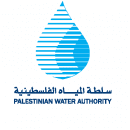Environmental Specialist
Introduction
The Palestinian Water Authority (PWA) is requesting a grant from the World Bank, International Development Association (IDA) to increase equitable access to safe water and sanitation services and to improve service delivery.The Program name is “Water Security and Resielience Program (WSRP). The operation detailed in this document is the first phase of this program. The program objective is expected to be achieved over a 12-year period through a Series of Projects (SoP. The programmatic approach will ensure continuity of the sector engagement and also facilitate a sustained contribution to the Bank’s ongoing support to the water sector in the West Bank and Gaza (WB&G). The proposed Program will have strong links to the water sector interventions co-financed by the World Bank and the Partnership for Infrastructure Development Multi-Donor Trust Fund (PID MDTF) that play a crucial role in addressing the challenges in the sector and critical water services in priority areas under the first project, while also laying the basis for rebuilding better in the long-term.
The Program is expected to consist of three projects that will overlap in time and vary in geography, with a consistent component-level design to facilitate scaling-up. The first Project has been started in mid 2023 while the the 2nd and 3rd Projects are expected to commence in 2026 and 2028, respectively. The anticipated duration of the first project is five years while the duration of subsequent projects is expected to be six years each, with overlapping periods. Overall SoP completion is expected by 2035.
The focus of the proposed SoP-1 will be on improving water services in line with the PWA’s priorities and the water sector’s strategic development plan and desire to improve water services in areas with the lowest water per capita and improve service providers operational and financial performance. In order to address the long-term structural challenges of lack of water supply, and contribute to a resilient and sustainable recovery, the project will also undertake strategic sector reform and capacity building activities supporting water sector institutions, encouraging a robust reform agenda and providing targeted technical support for improved management of O&M toward financial sustainability of the sector and contribute to the improvement and containment of and bolster the water sector’s resilience to future disasters such as COVID-19.
Project Components: The Project will consist of four components:
Component 1. Improvement of Water and Wastewater Infrastructure and Service Management aims to improve water supply and bolster the population’s resilience to increasing water shortages through investments in water facilities based on identified priorities. It will also finance the required infrastructure for bulk water supply and the expansion of water distribution networks to remove critical bottlenecks and improve water allocation. The aim of these investments is to provide safely managed water supply services to the unserved and under-served population. This component will also finance the O&M of the Hebron WWTP to ensure the efficiency of the plant performance, and will include the following sub-components:
(a) Sub-Component 1.1 – Bulk Water Supply System in Jenin: The project will finance the construction of the Northeast Jenin Bulk Water Supply System which will include the Salem and Al Jalameh connection points, bulk water transmission pipeline, balancing and regional tanks, and main and local booster pump stations.
(b) Sub-component 1.2 – Northeast Villages Water Distribution System in the Jenin area: (Deir Abu Daief, Jalaboun, Arabuna, Northern Beit Qad, and Southern Beit Qad) making up to about 1,500 new connections (residential, institutional and commercial).
(c) Sub-Component 1.3 – Hebron Wastewater Operation and maintenance: This sub-component will finance the required services for the operation and maintenance O&M of the Hebron wastewater treatment plant for five years starts after the successful operation of the WWTP.
Component 2. Improvement of Water Sector Institutions Performance: This component will finance goods, works and services to strengthen the water institutions and enhance the service providers operational and financial efficiency and their responsiveness to emergencies. It will also provide necessary support to implement the sector reform and improve the social accountability of service providers. Component 2 shall include the following subcomponents: Subcomponent 2.1: Strategic planning and sector reform, Subcomponent 2.2: Improve Financial and Operational Performance of the Service Providers, Subcomponent 2.3: Improve Social Accountability of Service Providers
Component 3. Project Management and Monitoring: this component will support: (i) the Project Coordination Unit (PCU) at PWA; (ii) the existing Hebron Wastewater Treatment Plant (HWWTP) Project Implementation Unit (PIU) until its closing date (iii) the hiring of experts on a competitive basis to reinforce the PCU; (iv) the enhancement of the career prospects of PWA staff, specifically female staff, by supporting their training (v) a paid internship program that will facilitate the entry into the utility of water engineers, E&S specialists, and financial and economic specialists studying in local universities.
Component 4. Contingent Emergency Response Component (CERC): This component will improve the PA’s ability to respond effectively in the event of an emergency in line with World Bank procedures on disaster prevention and preparedness.
Environmental and Social Assessment of the Project
The Water Security and Resilience Program will be implemented in compliance with the World Bank new Environmental and Social Framework (World Bank ESF) that was approved in August 2016 and got effective in late 2018 (http://pubdocs.worldbank.org/en/837721522762050108/Environmental-and-Social-Framework.pdf), in addition to applicable Palestinian laws, policies and regulations governing environmental and social issues.
In order to fully comply with Palestinian Environmental Law and World Bank ESF, as well as to support the sustainability of the expected project outputs and outcomes, the following documents were developed by PWA, reviewed and cleared by the Bank, and published on the PWA website and the Bank system:
Environmental and Social Management Framework (ESMF)
Resettlement Framework (RF)
Labor Management Procedures (LMP), including details of workers’ Grievance Mechanism (GM)
Stakeholder Engagement Plan (SEP), including details of project GM
Site-specific Environmental and Social Impact Assessments/Environmental and Social Management Plans (ESIAs/ESMPs)
Environment and Social Commitment Plan (ESCP)
A brief description of the project’s potential (but not limited to) environmental risks and impacts and environmental risk mitigation instruments/measures, in relation to the relevant ESF Environmental Standards (ESSs), are summarized below:
ESS1 Assessment and Management of Environmental and Social Risks and Impacts
Overview of application of ESS1:
Key environmental issues under ESS1 are related to occupational health and safety during the construction, and operation of wastewater treatment plants, other environmental risks including noise, dust, waste and hazardous waste generation, impact on the nature of land use, increase in the quantity of wastewater produced, impacts on road and traffic safety, and the yield of the agricultural wells in the area.
Environmental risks and impacts has been already assessed in the site specific ESIA/ESMPs of component1
ESS3 Resource Efficiency and Pollution Prevention and Management
Overview of the relevance of ESS3 for the project:
ESS3 is relevant to the Project as it will involve the construction of water systems, and operation and maintenance activities for wastewater treatment plants that would lead to significant increase of the use of water, generate wastes, sludge, effluent discharges, laboratory wastes that could cause pollution and would require considerable energy use. The systems will be optimized by considering the following actions: (i) conducting detailed water balance; (ii) opportunities for improvement in water use efficiency; (iii) specific water use assessment; (iv) operation benchmarking, (iv) preparing OHS Plan and ERP for all the various sub-activities included in site-specific ESIA/ESMPs, and (v) assessing the laboratory capacity at PWA and/or in the country and propose the necessary training.
ESS6 Biodiversity Conservation and Sustainable Management of Living Natural Resources
Overview of the relevance of ESS6 for the project:
This standard is relevant. Most of the project sites are in populated urban and rural areas that do not have high biodiversity conservation value and no ecosystem services are likely to be impacted by the Project. Moreover, the site-specific ESIAs/ESMPs assessed the impacts on habitats of importance (if any).
ESS8 Cultural Heritage
Relevant. No tangible or intangible cultural heritage is expected to be impacted by project activities. However, the project will involve excavation and given the historic nature of the country there is always a chance to find tangible cultural heritage. Consequently, as a minimum, the chance finding approach will be applied, and chance find procedures were prepared as part of the ESMF by PWA and will be incorporated in all works’ contracts.
Individual Consultancy Service for an Environmental Specialist
PWA plans to hire an individual consultant in the West Bank as an Environmental Specialist (ES) to ensure full compliance with Palestinian Environmental Law and the World Bank ESF, this hire will also support the sustainability of the expected project outputs and outcomes throughout the project lifecycle.
Main Tasks, Responsibilities and Scope of Work
The Environmental Specialist is expected to monitor and follow up all the environmental aspects of the Water Security and Resilience Program, within all components of the project as follows:
In collaboration with the Social Specialist, lead and coordinate the PWA team’s efforts in providing advice, building capacity, and advancing the development and implementation of the environmental risk management policies and procedures for Donors such as World Bank, AFD, kfW) (e.g. the Bank’s ESF) during project preparation and implementation.
Support and collaborate with the PCU team members at PWA for the preparation and implementation of the project’s ESMF, ESMPs, ESIAs, LMP and other relevant E&S instruments, plans etc.
Supervise the implementation of the project ESIAs/ESMPs.
Provide technical support and guidance to project teams on environmental matters, including identifying mitigation measures and best practices.
Monitor project activities to ensure compliance with environmental requirements and standards, and conduct periodic environmental audits. This shall require periodically field visits and monitoring of environmental management activities and providing timely advice as required.
Carry out stakeholder engagement and consultation processes, including the affected communities, government agencies, and non-governmental organizations, in coordination with Social Specialist
Participating in relevant meetings, workshops, donors’ missions, and training sessions related to environmental management and the World Bank ESF.
Ensure the inclusion of specific environmental and social instruments / requirements in the bidding documents.
In collaboration with the Social Specialist, prepare and submit regular environmental and social progress reports to the Project Manager.
Conduct capacity assessment and identify what capacity building is needed in terms of environmental management aspects and provide support in conducting training on environmental issues.
Undertake other duties as per the requirements of the project or as directed by the PCU manager at PWA.
Jobs.ps, Ltd. All Rights Reserved.
Minimum Required Qualifications:
The ideal candidate should possess the following qualifications and experience:
At least a bachelor degree in environmental studies, environmental engineering, or environmental science.
Minimum 5 years work experience in the field of environment including working according to the requirements of international/donor institutions. Preferably water and sanitation and relevant infrastructure sector
Relevant experience in preparing environmental and social reports, implement ESIA/ESMP and carry out supervision / monitoring for donor financed projects (e.g. The World Bank).
Familiarity with the World Bank Environmental and Social Framework, standards and requirements.
Experience in Palestine and/or fragile countries / states is plus.
Strong analytical and problem-solving skills, with the ability to conduct thorough environmental assessments and impact analyses.
Experience of working in teams at different levels. Excellent communication and interpersonal skills, with the ability to effectively engage with diverse stakeholders.
Good management skills, particularly workshop organizing and moderation. Proficiency in relevant software applications for environmental data analysis and reporting
Languages: Fluency in Arabic and good English skills (written and spoken)
Time Frame and Application Procedure
The contract will be for 1 year extendable as demand necessity, on a full-time basis. The expected start date for the position is August 2024.
Interested candidates shall submit her/his applications includes (Cover letter, CV describing similar assignments, experience in similar conditions, availability of appropriate skills, etc.) by email addressed below no later than 15/07/2024.
Note: When submit the application please name the email by your name,Environmental Specialist
For more clarification, please do not hesitate in contacting us during working hours (8:00 am-15:00pm).
Tel: 02 2987665
Only shortlisted candidates will be contacted






